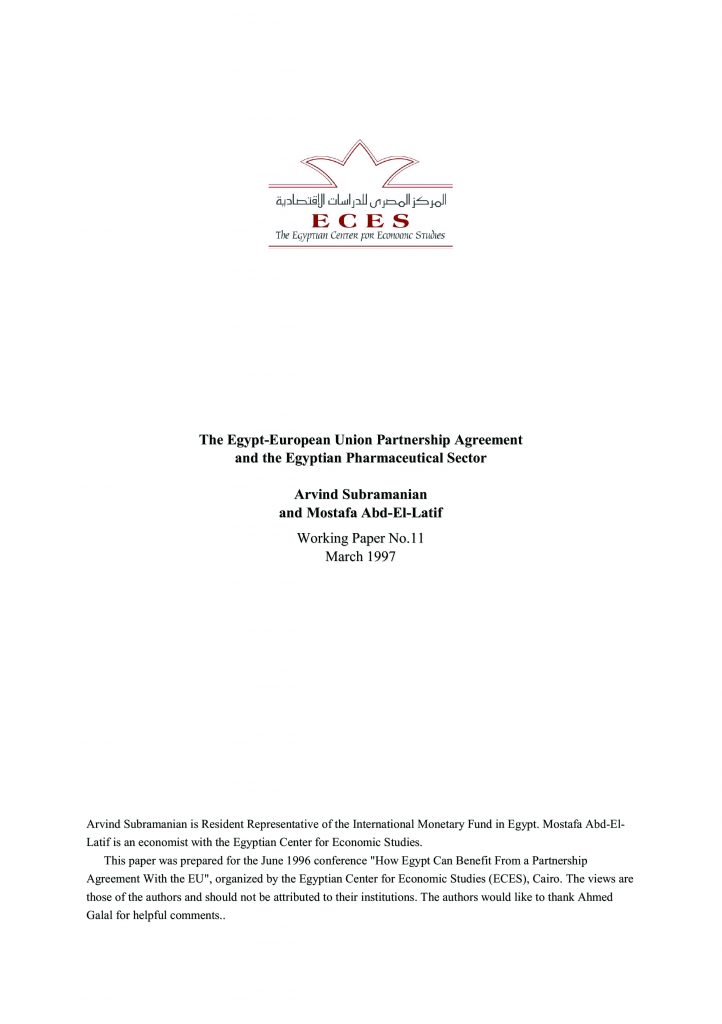Abstract:
Following the completion of the Uruguay Round and the institution of the World Trade Organization, Egypt has undertaken negotiation of a free trade agreement with the European Union. This paper examines the potential impact of these developments on the pharmaceutical sector in Egypt, focusing on the TRIPs and EU agreements, and seeks to draw conclusions about how to maximize benefits for the sector. The more important impact on the Egyptian pharmaceutical sector will be from changes to Egypt’s legal regime governing patent protection, which shall emanate, not from the EU agreement, but from the Uruguay Round’s Trade-Related Aspects of Intellectual Property Rights Agreement (TRIPs).
This paper describes the main provisions of the TRIPs agreement that will affect Egypt’s pharmaceutical sector, and outlines how patent protection generally affects developing countries such as Egypt. It looks at the additional obligations which the EU agreement will mean for Egypt, and examines options facing policy makers and the industry.
The paper concludes that, as the TRIPs agreement will force pharmaceutical producers to move away from imitation-based production, the competitive advantage in Egypt’s pharmaceutical sector will shift to foreign companies whose production is based on research and development. Only a small share of the current market, however, will be thus affected.

The Egypt-European Union Partnership Agreement and the Egyptian Pharmaceutical Sector
10-03-1997
Author(s): Arvind Subramanian & Mostafa Abd El-Latif
Publication Number: ECES-WP11-E
